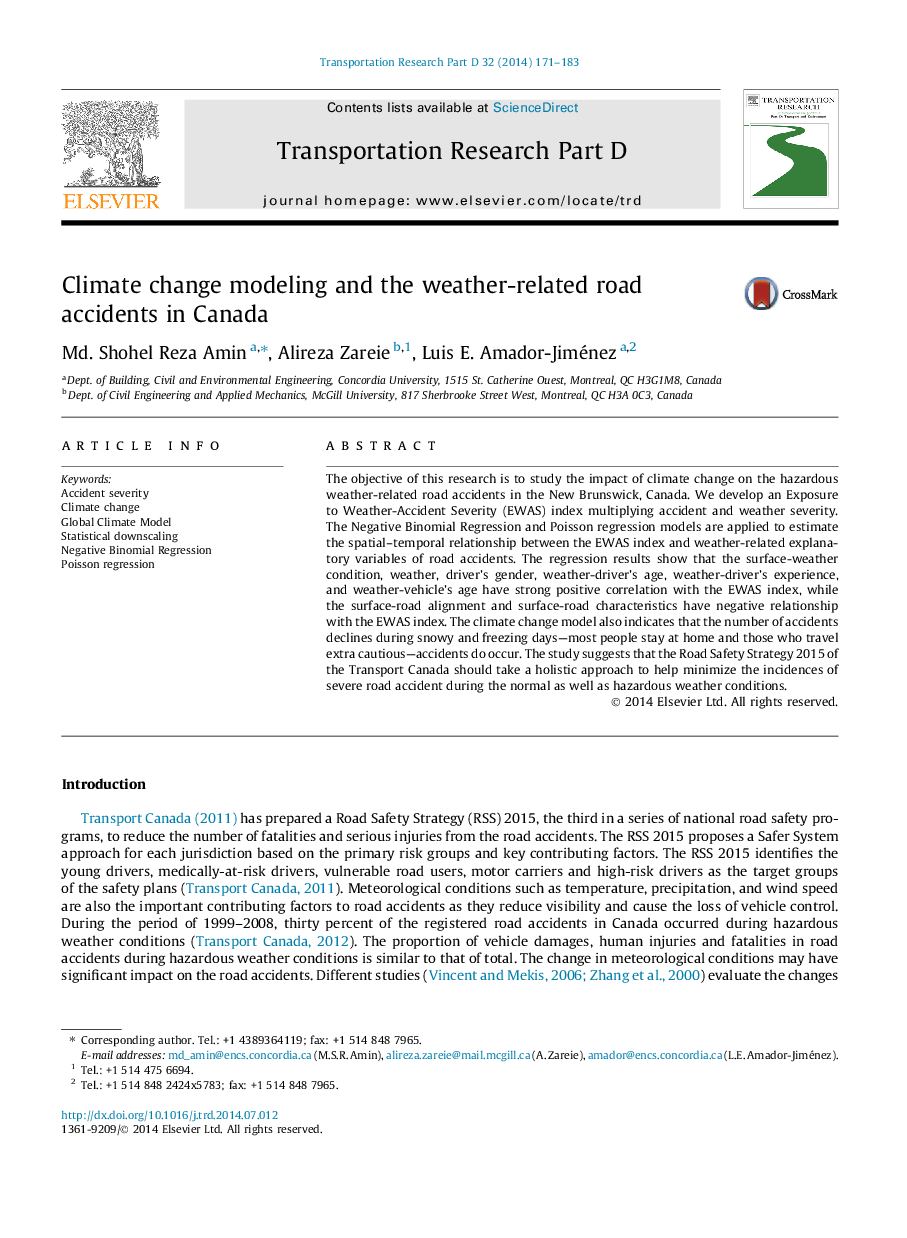| Article ID | Journal | Published Year | Pages | File Type |
|---|---|---|---|---|
| 7500890 | Transportation Research Part D: Transport and Environment | 2014 | 13 Pages |
Abstract
The objective of this research is to study the impact of climate change on the hazardous weather-related road accidents in the New Brunswick, Canada. We develop an Exposure to Weather-Accident Severity (EWAS) index multiplying accident and weather severity. The Negative Binomial Regression and Poisson regression models are applied to estimate the spatial-temporal relationship between the EWAS index and weather-related explanatory variables of road accidents. The regression results show that the surface-weather condition, weather, driver's gender, weather-driver's age, weather-driver's experience, and weather-vehicle's age have strong positive correlation with the EWAS index, while the surface-road alignment and surface-road characteristics have negative relationship with the EWAS index. The climate change model also indicates that the number of accidents declines during snowy and freezing days-most people stay at home and those who travel extra cautious-accidents do occur. The study suggests that the Road Safety Strategy 2015 of the Transport Canada should take a holistic approach to help minimize the incidences of severe road accident during the normal as well as hazardous weather conditions.
Keywords
Related Topics
Life Sciences
Environmental Science
Environmental Science (General)
Authors
Md. Shohel Reza Amin, Alireza Zareie, Luis E. Amador-Jiménez,
